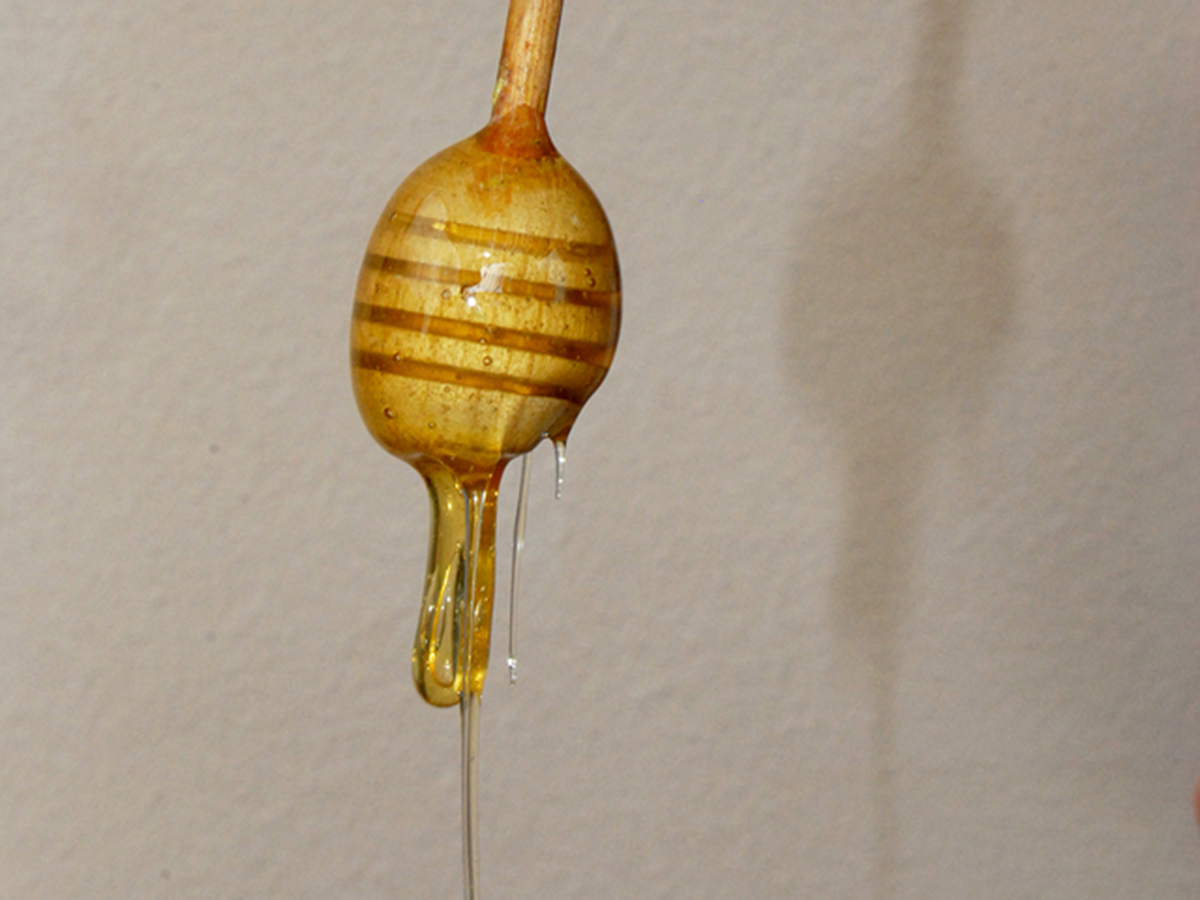Table of Contents
Raw honey is harvested from beehives and eaten or used as it is. But when honey is mass-produced for commercial sale, it is generally processed. The two most common processes are irradiation (which involves radical heating) and filtering.
Effects Of Gamma Irradiation On Honey
Gamma irradiation is just one of several forms of irradiation which basically involves “nuking foods.” Various processes have been used for more than half a century, with the US government continually insisting that all food treated is safe to eat.

The argument for irradiation of honey is that it is essential to sterilize it. Further, those who believe in the irradiation process for honey cite studies that show it doesn’t affect its antibacterial properties. They also argue that for honey to be beneficial, it needs to be free of anything that might contaminate it, including pollen and nectar.
Wound care is seen to be the most exciting element of natural honey, and this is where most research studies are focused. So if the antibacterial properties aren’t affected, concern lessens – just a little.
Nevertheless, irradiation remains a controversial issue, with researchers finding that animals given irradiated food often suffer from cancer, chromosomal abnormalities, reproductive dysfunctions, vitamin deficiencies and premature death. This is generally why those in the know avoid processed foods in general, wherever possible, choosing local sources where organic food is produced, rather than mass-produced commercial foods. Honey is no different.
Gamma irradiation is a food preservation technique that was designed to protect food from contamination, particularly when it is being stored over time. While there are undoubtedly good commercial reasons for irradiation, which many countries insist is declared on labels, even the most positive research findings show that irradiation does affect the properties of honey.
For instance, one academic study undertaken in Malaysia and Turkey last year (2014) – Does Gamma Irradiation Affect Physiochemical Properties of Honey? – found that the vitamin E content of the honey tested decreased significantly, as did its moisture content, which can lead to fermentation. They maintained that the vitamin C content and color intensity were increased, implying this was a positive factor.
At the same time, many scientists remain opposed to irradiation in general, For instance:
- George L Tritsch, Ph D of the Roswell Park Cancer Institute in Buffalo, New York warns that irradiation will become expensive in terms of health care costs and human life, because it undoubtedly increases levels of carcinogens and mutagens in food that has been irradiated.
- Samuel S Epstein, MD, professor of occupational and environmental medicine at the University of Illinois has labeled large-scale irradiation of food a “toxicological experiment in human populations.”
- John W Gofman, MD, Ph D, from the University of California, Berkeley notes that irradiation definitely cases many unnatural and sometimes identifiable chemicals to be formed in food that has been irradiated. He maintains that it is a violation of human rights to “trick” people into buying any type of food that has been irradiated.
Filtering Of Honey
When we filter things we generally do it to clarify and purify the product. But when it comes to honey, it isn’t just impurities that are filtered to extend its shelf life. Instead, the accusation is that all pollen is removed primarily to hide the origin of the honey. This happens even though the World Health Organization (WHO) and other bodies have stated that without pollen in honey, there is no way to ensure that it originated from a safe and legitimate source.
While pollen is commonly filtered out of honey, it doesn’t make sense to filter out all the pollen. As the president of the American Honey Producers Association, Mark Jensen says, all ultra-filtration of honey to get rid of pollen does is to “diminish the quality of the honey” and add to its cost. The only rational explanation is that the pollen has been removed as part of the honey laundering system, so people don’t realize they are buying cheap honey from China.
READ How To Recognize Real Honey
If you care about the quality of honey you use, buy raw, organic honey made by bees in your part of the country.
- www.ncbi.nlm.nih.gov/pubmed/24770820
- www.ncbi.nlm.nih.gov/pmc/articles/PMC3609166
- www.academia.edu/8487949/Does_Gamma_Irradiation_Affect_Physicochemical_Properties_of_Honey
- http://www.foodsafetynews.com/2011/11/tests-show-most-store-honey-isnt-honey/#.Ve7OzM7MeZZ https://www.organicconsumers.org/news/do-you-know-what-pasteurization-and-irradiation-really-mean https://www.foodandwaterwatch.org/factsheet/top-10-reasons-to-oppose-food-irradiation/
- libertyparkusafd.org/lp/NatureFirst%20USA/Special%20Reports%5Cfood%20irradiation%5CMany%20in%20the%20Scientific%20Community%20Are%20Opposed%20to%20Irradiation.htm
- www.mayoclinic.org/drugs-supplements/honey/evidence/hrb-20059618
- www.naturalnews.com/038365_honey_survival_food_Manuka.html
- www.telegraph.co.uk/lifestyle/wellbeing/5979247/The-benefits-of-Manuka-honey.html
- Photos courtesy Janek Szymanowski ©
- Important notification about information and brand names http://www.steadyhealth.com/polices/terms-of-use#copyright


Your thoughts on this